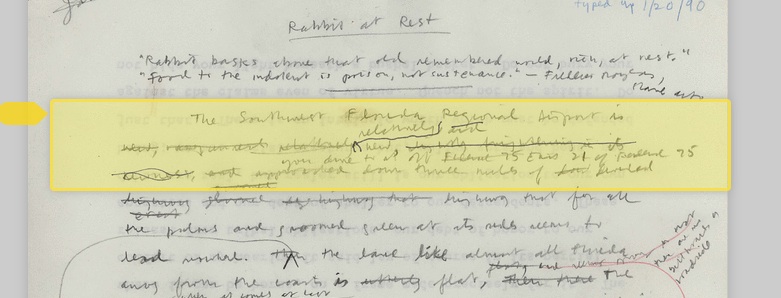If, like me, you’ve been puzzled by Obama’s oscillations over the BP drilling catastrophe, then Tim Dickinson’s long article in Rolling Stone makes sobering reading. Essentially it highlights the extent to which the Obama Administration failed to deal with the corruption and incompetence in the Federal Minerals Management Service — the supposed regulator of oil drilling. Here’s an excerpt:
During the Bush years, the Minerals Management Service, the agency in the Interior Department charged with safeguarding the environment from the ravages of drilling, descended into rank criminality. According to reports by Interior’s inspector general, MMS staffers were both literally and figuratively in bed with the oil industry. When agency staffers weren’t joining industry employees for coke parties or trips to corporate ski chalets, they were having sex with oil-company officials. But it was American taxpayers and the environment that were getting screwed. MMS managers were awarded cash bonuses for pushing through risky offshore leases, auditors were ordered not to investigate shady deals, and safety staffers routinely accepted gifts from the industry, allegedly even allowing oil companies to fill in their own inspection reports in pencil before tracing over them in pen.
“The oil companies were running MMS during those years,” Bobby Maxwell, a former top auditor with the agency, told Rolling Stone last year. “Whatever they wanted, they got. Nothing was being enforced across the board at MMS.”
Salazar himself has worked hard to foster the impression that the “prior administration” is to blame for the catastrophe. In reality, though, the Obama administration was fully aware from the outset of the need to correct the lapses at MMS that led directly to the disaster in the Gulf. In fact, Obama specifically nominated Salazar – his “great” and “dear” friend – to force the department to “clean up its act.” For too long, Obama declared, Interior has been “seen as an appendage of commercial interests” rather than serving the people. “That’s going to change under Ken Salazar.”
Salazar took over Interior in January 2009, vowing to restore the department’s “respect for scientific integrity.” He immediately traveled to MMS headquarters outside Denver and delivered a beat-down to staffers for their “blatant and criminal conflicts of interest and self-dealing” that had “set one of the worst examples of corruption and abuse in government.” Promising to “set the standard for reform,” Salazar declared, “The American people will know the Minerals Management Service as a defender of the taxpayer. You are the ones who will make special interests play by the rules.” Dressed in his trademark Stetson and bolo tie, Salazar boldly proclaimed, “There’s a new sheriff in town.”
Salazar’s early moves certainly created the impression that he meant what he said. Within days of taking office, he jettisoned the Bush administration’s plan to open 300 million acres – in Alaska, the Gulf, and up and down both coasts – to offshore drilling. The proposal had been published in the Federal Register literally at midnight on the day that Bush left the White House. Salazar denounced the plan as “a headlong rush of the worst kind,” saying it would have put in place “a process rigged to force hurried decisions based on bad information.” Speaking to Rolling Stone in March 2009, the secretary underscored his commitment to reform. “We have embarked on an ambitious agenda to clean up the mess,” he insisted. “We have the inspector general involved with us in a preventive mode so that the department doesn’t commit the same mistakes of the past.” The crackdown, he added, “goes beyond just codes of ethics.”
Except that it didn’t. Salazar did little to tamp down on the lawlessness at MMS, beyond referring a few employees for criminal prosecution and ending a Bush-era program that allowed oil companies to make their “royalty” payments – the amount they owe taxpayers for extracting a scarce public resource – not in cash but in crude. And instead of putting the brakes on new offshore drilling, Salazar immediately throttled it up to record levels. Even though he had scrapped the Bush plan, Salazar put 53 million offshore acres up for lease in the Gulf in his first year alone – an all-time high. The aggressive leasing came as no surprise, given Salazar’s track record. “This guy has a long, long history of promoting offshore oil drilling – that’s his thing,” says Kierán Suckling, executive director of the Center for Biological Diversity. “He’s got a highly specific soft spot for offshore oil drilling.” As a senator, Salazar not only steered passage of the Gulf of Mexico Energy Security Act, which opened 8 million acres in the Gulf to drilling, he even criticized President Bush for not forcing oil companies to develop existing leases faster.
Worth reading in full.







